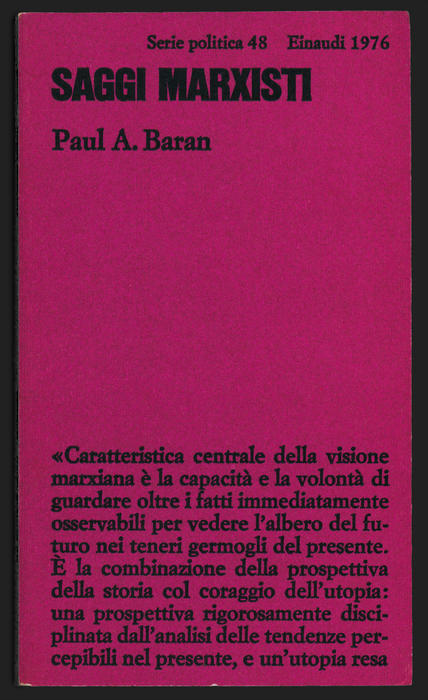Einaudi Serie Politica
Einaudi, 1968
Part of Sezione Tascabili
In the years in which fiction was pushed to the margins of "pocket" series and economic essays became a new terrain of debate on contemporary issues, almost at the same time of Laterza's "Tempi nuovi", for 1000 Italian lire Einaudi publishes "La contestazione cinese" by Edoarda Masi. It's the first of “a pocket series that offers up-to-date tools for analysis and political documentation”. The "Serie politica" was much discussed in the editorial meetings at Einaudi, with opinions contrary to the printing of a "militant" political series and current affairs, opposed to the strong interest of Giulio Einaudi to publish issues that moved current affairs.
However, the series was successful in targeting students and militants, young people who had participated in the struggles from '67 and '69 and sought serious information on the discussions taking place in Italy and around the world. With the change in the interests of the public and the weakening of the intellectual drive for the debate on current political issues, towards 1976 economic difficulties emerged in the sale of the series, as well as editorial problems with the exhaustion of issues to be addressed. The latest essays are published in 1977, and many authors will then be reprinted within the longer running "Nuovo Politecnico" series.
The identifying aspect of the series is the bright purple color of the cover, in which the black texts sometimes disappear. An exception is "La via cinese al socialismo" of 1973, which alternates a yellow band around the title. In a setting very similar to the "Quaderni rossi", a magazine dedicated to the workers' struggles by Raniero Panzieri, the cover is entirely typographic: the title set in a narrow sans serif contrasts with an extract of the book set with Garamond that starts from the front and continues on the back. "I never liked it" confesses Luca Baranelli, editor at Einaudi from 1962 to 1985 who followed the series from the beginning. The interior retains the classic structure of Einaudi publications in Simoncini Garamond.

Edoarda Masi, "La contestazione cinese"
Serie politica 1, April 1968 (1a edizione)
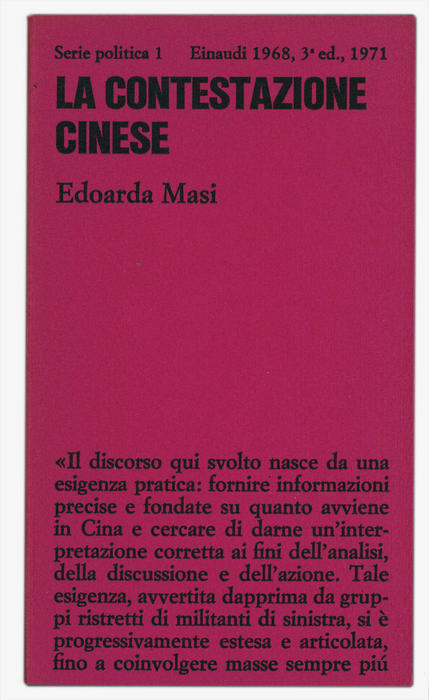
Edoarda Masi, "La contestazione cinese"
Serie politica 1, October 1971 (3a edizione)
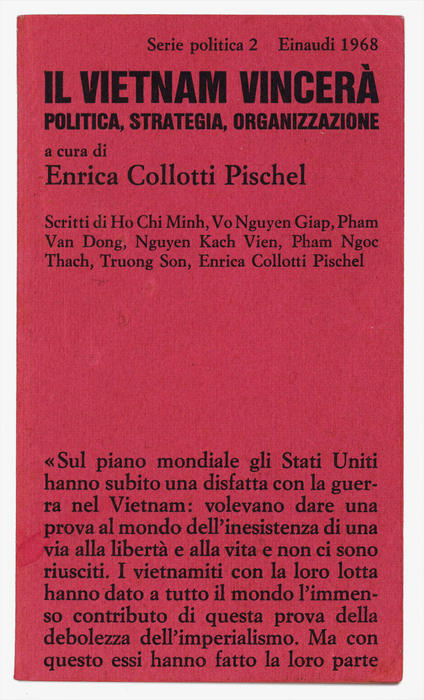
Autori Vari, "Il Vietnam vincerà. Politica, strategia, organizzazione"
Serie politica 2, June 1968 (1a edizione)
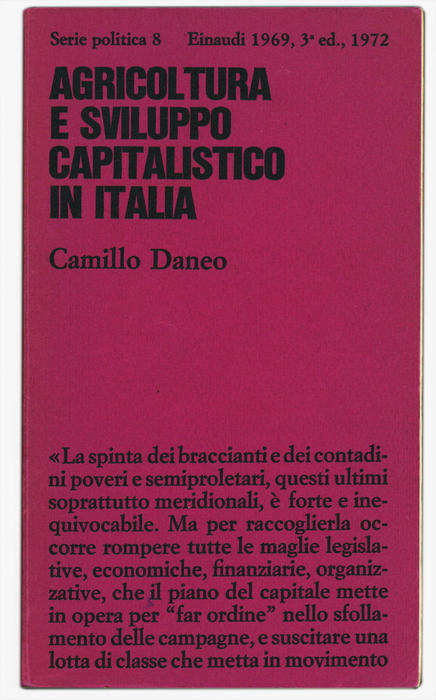
Camillo Daneo, "Agricoltura e sviluppo capitalistico in Italia"
Serie politica 8, November 1972 (3a edizione)
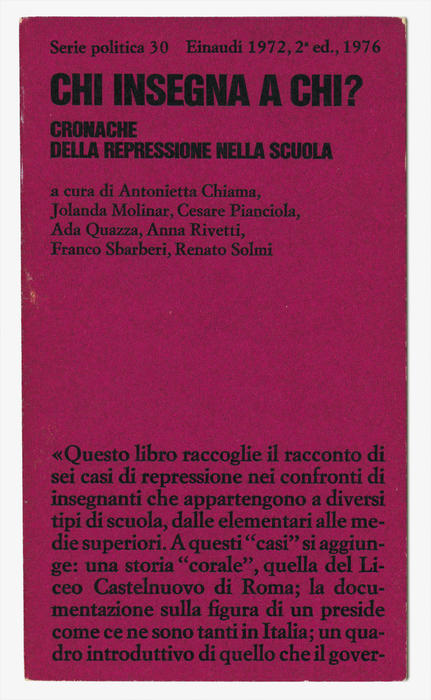
Autori Vari, "Chi insegna a chi? Cronache della repressione nella scuola"
Serie politica 30, July 1976 (2a edizione)
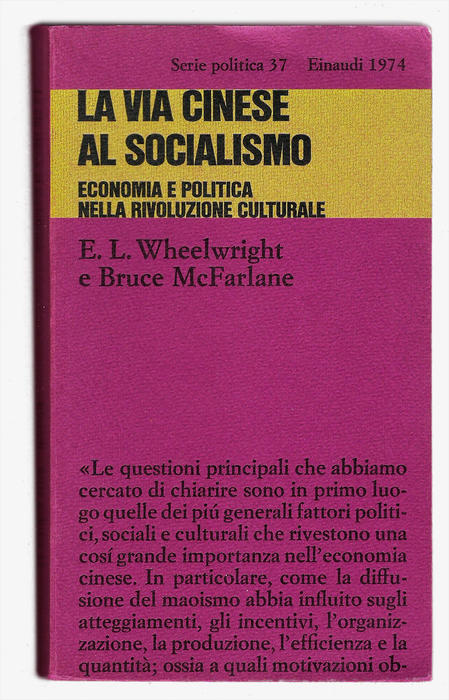
Wheelwright, McFarlane, "La via cinese al socialismo"
Serie politica 37, November 1974 (1a edizione)
Paul A. Baran, "Saggi marxisti"
Serie politica 48, January 1976 (1st edition)
Einaudi
Founded in 1933 by Giulio Einaudi and a group of friends, all students at the classical high school Massimo d'Azeglio in Turin, with a clear intention of civil and political commitment. The ostrich logo is immediately inherited from the magazine "La cultura", purchased by Einaudi in 1934. The anti-fascist imprint generates many difficulties in the first period, but some famous fiction series are inaugurated under the direction of Cesare Pavese, such as "The Corals". After the war, ties with the PCI became stronger, Einaudi published, among other things, the works of Antonio Gramsci. Between the 1960s and 1970s, the publication of numerous successful series began, such as "Nuovo Politecnico", "Piccola Biblioteca", "Gli ostruzzi" and "Centopagine". The financial and identity crisis of the publishing house in the 1980s led to the purchase by Mondadori in 1994. Giulio Einaudi died in 1999, many of the historic series are still continued under the Einaudi brand.
